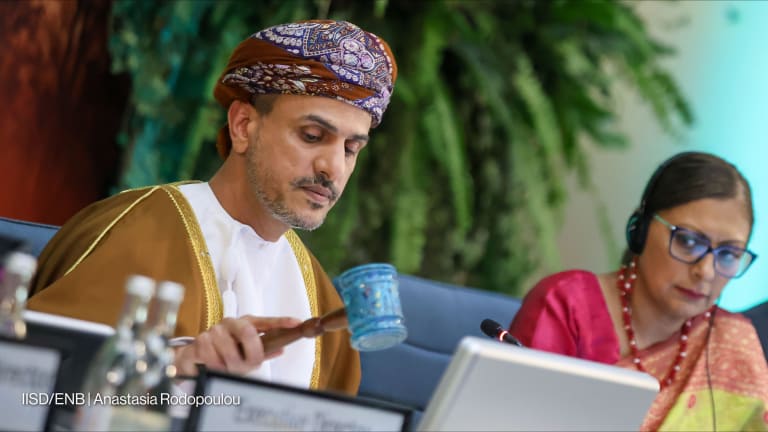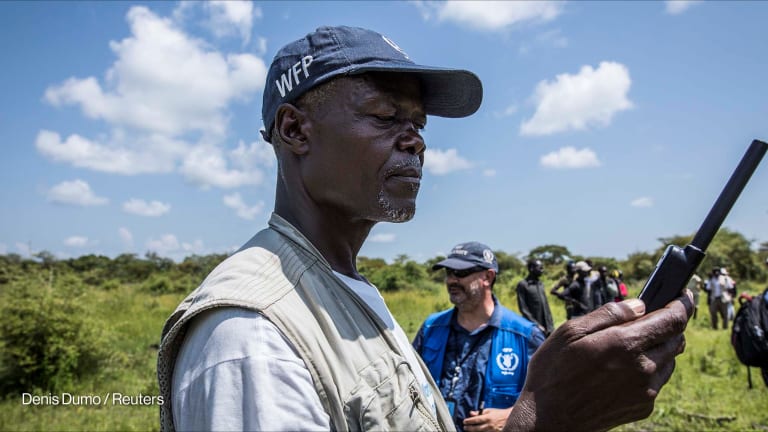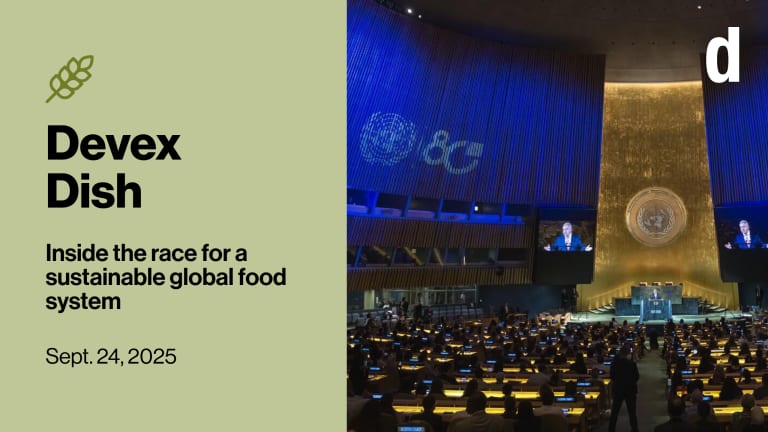UN Secretary-General Ban Ki-moon has urged the United States to take a leading role in forging a new international pact to combat global warming, warning that the consequences of failure outweigh the cost of tackling climate change. “No country is more important than the United States in resolving this climate change issue,” Ban told reporters in Washington D.C. on Nov. 10 after meeting with congressional leaders ahead of the UN climate change conference in Copenhagen next month. Highlighting that in less than a month world leaders are slated to gather in Copenhagen, Ban said they must conclude “a robust, global agreement that can serve as a foundation for a climate treaty.”
Despite good global cereal harvests this year, millions of people in dozens of poor countries are in desperate need of emergency humanitarian aid due to stubbornly high food prices, the UN agricultural agency warned in a report. Critical food insecurity is affecting 31 countries and the situation is particularly acute in East Africa, where prolonged drought and mounting conflict have left an estimated 20 million people in need of food aid, according to the FAO. The latest Crop Prospects and Food Situation report noted that although international food prices have fallen significantly since their peak a few years ago, wheat and maize prices rose in October and rice export prices are still high above pre-crisis levels. “For the world’s poorest people who spend up to 80 percent of their household budgets on food, the food price crisis is not over yet,” said FAO Assistant Director-General Hafez Ghanem.
An independent UN human rights expert who just completed a visit to South Ossetia has called for “more pragmatism and less politics” to improve the situation of those displaced during last year’s armed conflict that pitted Georgia against separatists and their Russian allies. Walter Kaelin, the Secretary-General’s Representative on the human rights of internally displaced persons (IDPs), cited lack of shelter as the main problem faced by those displaced within South Ossetia during the fighting in August 2008. It is estimated that 680 houses, in addition to a number of public civilian installations, were destroyed in Tskhinvali during the fighting.
The Paris-based International Energy Agency Energy (IEA) urged worldwide energy revolution and called for more funds to tackle the crisis of climate change in a report published on Nov. 10. According to the IEA’s World Energy Outlook 2009 report, due to the violent contraction of the global economy following the financial crisis, industrial production is estimated to consume less energy worldwide this year, which will be the first fall since 1981. However, big demand for energy will come back as soon as the economy rebounds, the IEA said, forecasting a 40 percent increase in energy demand in 2030. The energy watchdog’s chief economist, Fatih Birol, told the Guardian the west was ignoring the issue of energy poverty in developing countries. The IEA also predicted that without international action by governments, there would still be 1.3 billion people – or 16 percent of the world’s population – with no access to electricity in their homes or villages by 2030.
A range of eco-friendly start-up initiatives in Bangladesh, Colombia, India, Niger, Southern Africa and Zimbabwe have won a notable sustainable development award, the UNEP announced. The Supporting Entrepreneurs for Environment and Development (SEED) Award recognizes promising new locally-driven enterprises that work to improve livelihoods, tackle poverty and manage the sustainable development of natural resources in developing countries. “The SEED Gold Winners show us that a low-carbon, resource-efficient green economy is as much a developing country and rural community issue as it is a developed country one,” said UNEP Executive Director Achim Steiner.
The UN has declared July 18 “Nelson Mandela International Day” in recognition of the former South African President’s contribution to the culture of peace and freedom. The resolution was adopted by the 192-member General Assembly to commemorate the Nobel Peace Prize laureate’s long-standing commitment to promoting conflict resolution, race relations, human rights, reconciliation and gender equality. The Day will be observed annually on July18, Mandela’s birthday, starting in 2010 when the former anti-apartheid leader will turn 92 years old. By adopting the resolution, the UN expressed its appreciation for a great man who had suffered for the sake of people everywhere, said Assembly President Ali Treki.
Printing articles to share with others is a breach of our terms and conditions and copyright policy. Please use the sharing options on the left side of the article. Devex Pro members may share up to 10 articles per month using the Pro share tool ( ).








